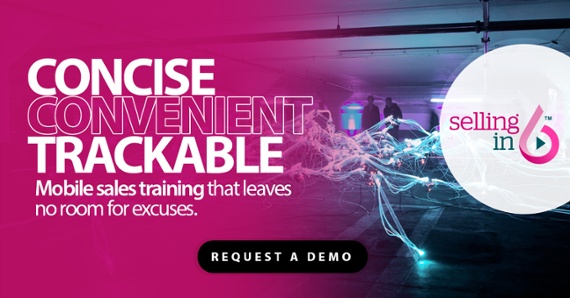Let’s assume you’re meeting a new prospect for your efficiency offerings. What steps should you take to ensure that you’re as prepared as possible for a meaningful discussion that produces an actionable outcome?

For most “salespeople,” the answer is some variant of the following four steps: 1) Show up for the meeting. 2) Ask predictable opening questions to assess the prospect’s needs and/or interest in your offering. 3) Modify your “pitch” based on the answers you hear in Step 2. 4) Hope for the best.
If I had to describe the above-referenced approach in two words, it would be “winging it.”
Unfortunately, “winging it” most often produces suboptimal results. It squanders valuable meeting time on questions that could have (should have) been answered with a little pre-meeting research. Moreover, it gives the salesperson very little time to customize his/her approach to capitalize on the prospect’s answers.
Sales professionals approach this challenge differently. They take the time to research their prospect before the meeting. Where does the organization stand when it comes to improving its energy efficiency? Which players’ cooperation will you need? Construction? Design? Finance? Maintenance? Sustainability? What names are associated with each of those roles? How well do they work together? Do they have a reputation for working well together or hiding in their respective silos?
How do you acquire such insights? Talk to people in your network who may know them. Look them up on LinkedIn, Facebook, or Twitter. Google them thoroughly, looking for articles they have written, or articles in which they’ve been quoted. Look for committees on which they serve, national associations to which they belong, things that have been said about them in the news. Simply put, look for any information that helps you understand their backgrounds, preferences, biases toward or against enhanced efficiency, etc. Pay particular attention to anything that provides insight into the personalities involved. The information you assemble becomes the fodder for what I call “real talk” once you get face to face with the prospect.
Let me give you a real-life example. A few years ago, one of my larger utility clients asked me reach out to a customer who controlled a large portfolio of high-energy-intensity buildings. The utility had noted that although this portfolio had tremendous potential for upgrades, it had not participated in any of the utility’s rebate or incentive programs. The utility thought that if I met with this company’s CEO, I could help them understand why efficiency had not been a higher priority for this customer.
So, what did I do? The night before my scheduled meeting with the CEO, I did some research. In just a couple hours, I discovered that he was a larger-than-life character with a somewhat checkered past. A common theme emerged from all of the articles I read: this CEO was an absolute megalomaniac. It’s not uncommon for a real estate CEO to be a megalomaniac. It takes a lot of drive and ego to build the sort of specialty building portfolio that this man now controlled.
The following day, I drove to the customer’s headquarters to meet with the CEO. The traffic was terrible. It was raining so hard, if I had been Noah I would have started building my Ark! Oh, and just to make things more interesting, the headquarters was surrounded by multiple construction zones, which eliminated virtually all of the street parking.
Fortunately, I always try to arrive 30 minutes early, so even with the traffic, weather and parking challenges, I still arrived on time. What happened next was a direct result of the research I had done the night before.
I walked into the boardroom where the CEO had just finished an earlier meeting. Did I complain about the weather? No. Did I kvetch about the lack of parking? No. Did I talk about anything other than him? No. The first thing I said was, “John (not his real name), I really like what you said last April about the resilience of your property type in today’s real estate economy.” He smiled broadly and asked, “What did I say?” I replied, “You said that regardless of the state of the economy, your particular property type would escape unscathed because there’s consistent need for the kind of facilities you specialize in. And you know something? You’re absolutely right. My partners and I had a two-million-square-foot portfolio in Southern California in the late eighties, and because of how careful we were in selecting properties, we effectively insulated ourselves from the economic hardships that defined the early Nineties.” He said (still beaming), “Where did I say that?” I said, “I think it was the Business Journal last April.” He said, “Oh yeah, I remember that interview now. Come in, sit down. What did you want to chat about today?”
So, what happened in those first couple seconds? My hunch is that he expected some energy-efficiency geek to arrive with an armful of utility brochures on rebates/incentives. Instead, he was pleasantly surprised to meet a peer, someone who really understood his industry… and perhaps more importantly, someone who respected him as a savvy real estate investor.
He probably appreciated the fact that I had taken the time to research, read, and remember what he had said in an interview.
Those first few minutes of “real talk” framed the conversation we were about to have on the important role that energy efficiency could play in making his portfolio even more valuable.
True sales professionals are astute enough to realize that traffic, weather, parking or similar small talk wastes valuable “first impression” time. They realize how powerful “real talk” can be in setting the stage for a productive meeting. Moreover, they’re willing to invest the time up front to ensure that the “real talk” is absolutely spot-on.







